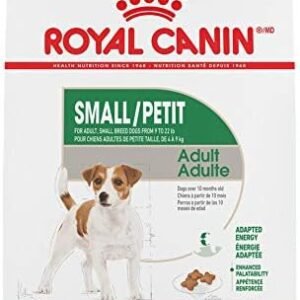Introduction
Have you ever stopped to ponder the incredible variety of foods that exist in the world? From succulent fruits to exotic spices, the range of flavors and aromas is astounding. One such spice, nutmeg, is known for its unique taste and its wide array of culinary uses. It’s often hailed as one of the most intriguing and versatile spices, finding its way into both sweet and savory dishes, but did you know that it’s also one of the most enigmatic and potentially dangerous foods for our furry friends, dogs? Yes, you read that correctly – nutmeg, the spice that elevates your holiday eggnog and gives a delightful kick to your baked goods, is a subject of concern when it comes to our canine companions.
In this article, we’ll delve into this aromatic dilemma and answer the question that’s surely crossed your mind: can dogs eat nutmeg? Beyond just addressing this pressing query, we’ll explore the pros and cons of introducing nutmeg into your dog’s diet. While some spices can be delightful additions to your pup’s meals, others can spell trouble. We’ll walk you through how much is too much and what to do if your dog gets a taste of a part of nutmeg that is not edible or safe for our four-legged friends.

Our furry companions are an integral part of our lives, and their health and happiness are of utmost importance. We believe that understanding what your dog can and cannot eat is a fundamental aspect of responsible pet ownership. So, as we embark on this culinary journey, let’s explore the world of nutmeg and find out whether it’s a flavor best kept away from our beloved canines or if there’s a safe way to introduce a touch of spice into their diet. Your dog’s well-being is at the heart of our discussion, and by the end of this article, you’ll be equipped with the knowledge to make informed decisions about nutmeg and your furry friend’s diet.
Table of Contents
Can Dogs Eat Nutmeg?
Before we dive into the intriguing world of nutmeg and its compatibility with our canine companions, let’s address the pivotal question: is nutmeg toxic or dangerous to dogs? The short answer is that nutmeg, in small amounts, may not be immediately toxic to dogs, but it’s far from being a recommended addition to their diet. Some dogs might be intrigued by the peculiar taste of this spice, but its consumption is not without potential risks.
Nutritional Facts of Nutmeg (per 100g)
| Nutrient | Amount |
|---|---|
| Calories | 525 kcal |
| Carbohydrates | 49.29 g |
| Protein | 5.84 g |
| Fat | 36.31 g |
| Dietary Fiber | 20.8 g |
| Sugars | 9 g |
| Vitamins | |
| – Vitamin A | 1027 IU |
| – Vitamin C | 3 mg |
| – Vitamin E | 0.25 mg |
| – Vitamin K | 0.1 µg |
| – Folate | 76 µg |
| Minerals | |
| – Calcium | 184 mg |
| – Iron | 3.04 mg |
| – Magnesium | 183 mg |
| – Phosphorus | 213 mg |
| – Potassium | 350 mg |
| – Sodium | 16 mg |
| – Zinc | 2.15 mg |
Nutmeg does offer some nutritional benefits, which include small amounts of vitamins and minerals. It contains vitamin A, vitamin C, vitamin E, vitamin K, and folate, among others. Additionally, nutmeg provides essential minerals like calcium, iron, magnesium, phosphorus, potassium, sodium, and zinc. These nutrients are indeed valuable for a dog’s overall health, but before you decide to sprinkle a dash of nutmeg onto your pup’s food, it’s essential to understand the potential drawbacks.
However, it’s crucial to recognize that while nutmeg does contain these nutrients, it’s not a primary source for a dog’s dietary needs. The quantities of these vitamins and minerals in nutmeg are relatively low when compared to dog food designed specifically to meet their nutritional requirements. It’s essential to ensure that your dog’s diet primarily consists of high-quality dog food that is tailored to their needs. Nutmeg should, at best, be a minimal and infrequent addition, and even then, with utmost caution.
The Potential Drawbacks of Nutmeg for Dogs
Nutmeg can be a double-edged sword when it comes to canine consumption. It’s essential to be aware of the potential negative effects and drawbacks:
Toxic Compounds: Nutmeg contains compounds like myristicin and elemicin, which can be harmful when ingested in significant quantities. These compounds can have psychoactive effects and may lead to symptoms such as hallucinations, disorientation, and even seizures in dogs.
Gastrointestinal Upset: Even in small amounts, nutmeg can cause gastrointestinal distress in dogs. This may manifest as vomiting, diarrhea, or an upset stomach. Some dogs may be more sensitive to nutmeg’s effects than others.
Allergic Reactions: Dogs, like humans, can develop allergies to various substances, including spices like nutmeg. Allergic reactions can range from mild skin irritation to more severe symptoms like swelling, itching, and difficulty breathing.
Liver Toxicity: Nutmeg contains compounds that can put extra strain on a dog’s liver. Over time, this can lead to liver toxicity, a potentially life-threatening condition.
Excessive Consumption: Dogs that ingest large quantities of nutmeg may experience more severe symptoms, including increased heart rate, agitation, and potentially life-threatening conditions like seizures or even coma.
Given these potential risks, it’s clear that nutmeg is not a spice that should be casually added to your dog’s diet. Even if some dogs might enjoy the taste, the potential consequences are not worth the experiment.
In the next sections, we will explore the safe alternatives and healthier dietary choices for your canine companion, ensuring that their nutrition aligns with their specific needs and doesn’t compromise their well-being. Remember, when it comes to your dog’s diet, safety and their long-term health should always be the top priorities.
How much Nutmeg can a Dog Eat?
When it comes to feeding your dog nutmeg, the golden rule is moderation. The key to ensuring your dog’s well-being is to recognize that treats, including nutmeg, should only make up a small percentage of your dog’s daily calorie intake. Dogs, like humans, have specific nutritional needs, and their primary diet should consist of foods that meet those requirements. Nutmeg should be an occasional addition, not a dietary staple.
To introduce your dog to the taste of nutmeg, start with a small piece. Observing how your dog reacts is crucial. Just like humans, individual dogs may have different sensitivities and preferences. Some dogs might not be interested in the flavor, while others might find it appealing. Pay attention to your dog’s reaction, and if there are any signs of discomfort or adverse effects, discontinue giving them nutmeg immediately.
Before offering nutmeg to your dog, it’s essential to prepare it in a specific way. Nutmeg should be ground or grated finely, as the whole nut can be challenging for dogs to digest. Additionally, only a tiny pinch should be used, and it’s often best to mix it with other dog-friendly foods to dilute its intensity.
The size and breed of your dog can significantly affect how much nutmeg they can tolerate. Larger dogs may be able to handle a bit more without any problems, while smaller breeds should receive even less. It’s crucial to be mindful of the portions you offer to your dog, as excessive consumption can lead to unwanted side effects.
To provide a general guideline, here are appropriate serving sizes of nutmeg based on a dog’s weight:
- Small Dogs (under 10 pounds): Pinch-sized amount or less.
- Medium Dogs (10-30 pounds): Small pinch-sized amount.
- Large Dogs (30-60 pounds): A little more than a pinch, but still minimal.
- Giant Dogs (60+ pounds): Slightly more, but always in moderation.
Remember that these are approximate guidelines, and individual dogs may react differently. Always start with the smallest amount and increase it gradually while closely observing your dog’s response.
It’s essential to reiterate that while a taste of nutmeg may not be immediately toxic, it’s not a necessary addition to your dog’s diet. The potential risks associated with nutmeg outweigh any perceived benefits, especially considering the plethora of other safe and healthy treats available for dogs.
In the following sections, we will explore some of these alternative treats that can provide your furry friend with both delicious flavors and nutritional benefits, all while keeping them safe and sound. Your dog’s health is paramount, and informed decisions about their diet will contribute to a long, happy, and healthy life for your beloved pet.
What are the Risks of Feeding Nutmeg to Dogs?
While it’s tempting to share a bit of our culinary delights with our canine companions, feeding nutmeg to dogs comes with a list of potential risks and hazards. It’s essential to be aware of these potential issues to ensure your dog’s safety and well-being.
One significant concern is the possibility of food allergies in dogs. Just like humans, dogs can develop allergies to various substances, and nutmeg is no exception. Allergic reactions can manifest in different ways, ranging from mild discomfort to severe symptoms. It’s crucial to be vigilant for signs of allergic reactions in your dog if you decide to offer them nutmeg.
Short-term signs of food intolerance, which could result from consuming nutmeg, often include gastrointestinal distress. This may present as vomiting, diarrhea, or an upset stomach. Some dogs may be more sensitive to nutmeg’s effects than others, and these symptoms can be quite uncomfortable for your furry friend.
Beyond food intolerance, nutmeg contains specific components that can pose hazards to dogs. Compounds like myristicin and elemicin, found in nutmeg, can have psychoactive effects when ingested in significant quantities. This can lead to symptoms such as hallucinations, disorientation, and even seizures in dogs.
It’s essential to watch out for signs and symptoms of adverse reactions in dogs from consuming nutmeg. These may include:
Vomiting: Frequent and uncontrolled vomiting can be a sign that your dog is having difficulty digesting nutmeg.
Diarrhea: An upset stomach can lead to diarrhea, which can be messy and uncomfortable for both you and your dog.
Lethargy: If your dog becomes unusually lethargic or seems tired and unresponsive, it might be a sign of discomfort.
Agitation: Restlessness, pacing, or agitation can be indicative of a dog’s distress after ingesting nutmeg.
Increased Heart Rate: Nutmeg can cause an increase in your dog’s heart rate, leading to a rapid heartbeat.
Hallucinations: In more severe cases, dogs may exhibit signs of hallucinations, which can be alarming and distressing for both the dog and the owner.
- Seizures: The most severe reaction to nutmeg can include seizures, which are life-threatening and require immediate veterinary attention.
It’s crucial to emphasize that while these symptoms are possible, they are not guaranteed to occur in every dog that consumes nutmeg. Some dogs may tolerate it better than others. However, given the potential risks and the availability of safer treat options, it’s advisable to err on the side of caution and avoid feeding nutmeg to your canine companion.
In the following sections, we will explore alternative treats and foods that can provide your dog with a delicious and safe culinary experience. Ensuring your dog’s health and happiness should always be the top priority, and making informed choices about their diet is an essential part of responsible pet ownership.
How to Feed Nutmeg to Your Dog and Make It More Enjoyable for Them
While we’ve established that nutmeg should be consumed in moderation and with caution by dogs, you might be wondering if there are any safe and enjoyable ways to introduce this spice into your dog’s diet. It’s essential to remember that nutmeg is not a dietary necessity for dogs, but if you’re interested in experimenting with it, there are some creative methods to make it more enjoyable for your furry friend.
1. Nutmeg as a Seasoning: One way to use nutmeg is as a seasoning for your dog’s food. If you decide to add a tiny pinch, make sure it’s finely ground and thoroughly mixed with your dog’s regular food. This will help dilute the intensity of the spice and make it more palatable. However, be cautious and monitor your dog for any adverse reactions.
2. Homemade Dog Treats: Another option is to incorporate nutmeg into homemade dog treats. By doing so, you can control the quantity of nutmeg and ensure it’s mixed with other dog-friendly ingredients. Here’s a simple recipe for nutmeg-infused dog treats:
Ingredients:
- 1 cup whole wheat flour
- 1/2 cup rolled oats
- 1 egg
- 1/4 cup unsweetened applesauce
- A pinch of finely ground nutmeg
Instructions:
- Preheat your oven to 350°F (175°C).
- In a bowl, mix the whole wheat flour and rolled oats.
- Add the egg, unsweetened applesauce, and a pinch of finely ground nutmeg to the dry ingredients.
- Stir the mixture until it forms a dough.
- Roll out the dough and use cookie cutters to create fun shapes for your dog’s treats.
- Place the treats on a baking sheet and bake for about 15-20 minutes or until they turn golden brown.
- Let the treats cool before offering them to your dog.
Remember to store any homemade treats in an airtight container to keep them fresh for your pup. Additionally, it’s wise to consult your veterinarian before introducing new ingredients into your dog’s diet, even in treat form.
3. Enhancing Your Dog’s Meals: Nutmeg can be used to enhance your dog’s meals, making them more appealing and flavorful. While the spice should be used sparingly, the right blend of flavors can pique your dog’s interest in their food. Consider mixing a tiny amount of nutmeg with other dog-safe ingredients like plain yogurt or unsalted, plain cooked chicken. This can add variety to your dog’s diet without compromising their health.
4. Explore Flavor Combinations: Nutmeg pairs well with certain dog-friendly foods like pumpkin, sweet potato, or plain rice. By combining these ingredients, you can create meals that not only taste delicious but also provide some added nutritional benefits.
Ultimately, when considering how to feed nutmeg to your dog, the emphasis should be on ensuring their safety and well-being. Creative methods like homemade treats or flavor-enhancing can be fun for both you and your dog, but it’s crucial to use caution and restraint.
In the next sections, we will explore other dog-friendly ingredients and treat options that can provide your pet with a diverse and enjoyable diet while prioritizing their health and safety. Your dog’s happiness and well-being should always be the guiding principles in their dietary choices.
10 FAQs about Dogs Eating Nutmeg
As we delve deeper into the topic of dogs and nutmeg, it’s natural to have questions and concerns. Here are the answers to some of the most frequently asked questions about dogs consuming nutmeg:
1. Can I give my dog nutmeg in small amounts?
While small amounts of nutmeg may not be immediately toxic to dogs, it’s not recommended. Nutmeg’s potential risks, including allergic reactions and gastrointestinal distress, outweigh any perceived benefits. It’s best to avoid giving nutmeg to your dog.
2. What if my dog accidentally eats nutmeg?
If your dog accidentally ingests a small amount of nutmeg, closely monitor them for any adverse reactions. If you notice any signs of discomfort, contact your veterinarian for guidance. In cases of severe reactions, seek immediate veterinary care.
3. Can nutmeg be used to make homemade dog treats?
Yes, nutmeg can be used in small quantities to make homemade dog treats. However, it should be finely ground and thoroughly mixed with other dog-friendly ingredients. Always consult your veterinarian before introducing new ingredients into your dog’s diet.
4. Are there any dog-friendly spices I can use instead of nutmeg?
Yes, there are several dog-friendly spices and herbs that you can use to add flavor to your dog’s meals or treats. These include cinnamon, ginger, and parsley. These spices are generally safer for dogs in moderation.
5. Is there a specific amount of nutmeg that is safe for dogs?
The safe amount of nutmeg for dogs varies based on their size and individual sensitivities. In general, it’s advisable to use the smallest amount possible or avoid nutmeg altogether. Consult with your veterinarian for personalized recommendations.
6. How can I make my dog’s food more appealing without nutmeg?
There are plenty of ways to enhance your dog’s meals without using nutmeg. You can use dog-friendly ingredients like plain yogurt, unsalted chicken, or pumpkin to add flavor and variety to their diet. Experiment with different flavors to find what your dog enjoys.
7. Can nutmeg cause long-term health issues in dogs?
Ingesting nutmeg in small amounts is unlikely to cause long-term health issues. However, if consumed in larger quantities, it can lead to liver toxicity and other severe health problems. Avoid giving your dog nutmeg to prevent any potential long-term risks.
8. Are some dog breeds more sensitive to nutmeg than others?
It’s possible that some dog breeds may be more sensitive to nutmeg’s effects than others. However, this sensitivity can vary widely among individual dogs, regardless of their breed. It’s essential to watch for any adverse reactions and adjust accordingly.
9. Can nutmeg be harmful to puppies or senior dogs?
Nutmeg can be equally harmful to puppies, adult dogs, and senior dogs. Age does not significantly affect a dog’s ability to tolerate nutmeg. The risks associated with nutmeg consumption remain consistent across all age groups.
10. How can I tell if my dog is having an allergic reaction to nutmeg?
Allergic reactions in dogs can manifest as skin irritations, swelling, itching, or difficulty breathing. If you suspect your dog is experiencing an allergic reaction after consuming nutmeg, seek immediate veterinary attention.
In summary, nutmeg should be approached with caution when it comes to your dog’s diet. While there is no definitive evidence that small amounts of nutmeg are immediately toxic, the potential risks, including allergies and gastrointestinal distress, make it advisable to avoid it altogether. Prioritize your dog’s safety and well-being by focusing on a balanced, dog-specific diet and consulting your veterinarian for guidance on suitable treats and flavors for your furry friend.
Conclusion
In conclusion, the question of whether dogs can eat nutmeg leads us to a simple but vital answer: while dogs can consume nutmeg in small amounts as an occasional treat, it’s crucial to be aware of the potential risks and limit their intake accordingly. Nutmeg is not essential for your dog’s health and may cause more harm than good if fed excessively or improperly.
As responsible pet owners, prioritizing our furry friends’ well-being is our primary concern. So, instead of focusing on nutmeg, consider safer and healthier alternatives to enhance your dog’s diet. Here are some tips and suggestions for alternative treats that are safe and nutritious for dogs:
Cinnamon: If you’re looking to add a warm and comforting flavor, opt for a pinch of cinnamon instead of nutmeg. It’s generally well-tolerated by dogs and has a pleasant aroma.
Pumpkin: Pumpkin is an excellent source of dietary fiber and essential nutrients for dogs. It can be a tasty addition to their meals and is easy on their digestive system.
Carrots: Dogs love the crunch and sweetness of carrots. These low-calorie treats are rich in vitamins and fiber, making them a healthy choice.
Blueberries: Packed with antioxidants and vitamins, blueberries make a fantastic, bite-sized snack for your canine companion.
Consult Your Veterinarian: Always consult your veterinarian for personalized recommendations on suitable treats and flavors for your dog’s unique dietary needs.
Your dog’s health, happiness, and safety should be your top priorities. If you have any questions or comments about what’s best for your dog’s diet, please feel free to share your thoughts and experiences in the comment section below. Your input is invaluable to our community of pet lovers, and together, we can ensure our furry friends lead long, healthy, and happy lives.



















